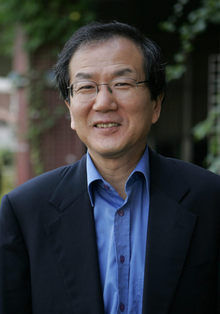 |
|
Hong Se-hwa, ombudsman of the Hankyoreh
|
By Hong Se-hwa, ombudsman of the Hankyoreh
The May sun, nature’s blessing, shines with a soft radiance upon the land. I feel more than fortunate to live here; but, then, I am also sometimes visited by a wave of sadness whose origin I cannot identify. I am old enough. But, now and then, I suddenly reexperience my adolescence, like a Demian's agony or a Werther's sorrow. I can only hope these sentiments aren’t unbecoming in an aged man. Whenever May arrives each year, there is something that dawns on my consciousness. It is the scene of Kwangju in May 1980, the very location of a civil uprising and brutal military crackdown. This happened only one year after I left for Europe.At that time, for days in a row French television aired Kwangju as top news. I was able to see vividly what was happening in Kwangju from a foreign country, while the same TV footage was not available in the country where it was actually happening. For a brief period of time, the demonstrators experienced the utopian feeling of liberation. Even though all they could eat were rice balls made on the street, they were so full of happiness at that time. But the utopia didn't last long. Soon, there was the military intervention, followed by the bloody crackdown. Seeing all the sheer brutality committed out in the open, my European friends asked me, "The Kwangju people, are they pagans, or an ethnic minority?" I can not erase this question from my mind. It is in me forever. Of course, we shouldn't allow any form of intolerance against pagans or ethnic minorities. But the question revealed that something that could possibly happen to pagans or ethnic minorities in another part of the world actually happened to the people in Kwangju. Kwangju taught me how lacking we are as human beings, to be able to be so easily swept in by a tide of collective insanity when there is a minimal difference of opinion in society, and how this weakness can eventually lead to such brutality. Twenty-six years have passed. Now the Kwangju uprising is remembered as part of Korea’s nascent democracy movement, but those responsible for the massacre received amnesty. This was in response to the call for "mercy and reconciliation." But the thing I find quite difficult to understand is that those responsible for the massacre actually did not repent their wrongdoing; nor did they request forgiveness. It is inconceivable to me that mercy and forgiveness have been rendered to those who did not ask for it. Besides, the media outlets that either distorted the facts or portrayed the citizens who fought against the dictatorial regime and injustice as a "rowdy mob" have yet to show any sign of self-reflection. Based on these facts, I believe that the words "forgiveness and reconciliation" are part of a deceptive effort to leave Kwangju behind in history or to compromise the nature of the incident. Let me be more specific. Can we, for instance, forgive and reconcile with the Japanese right-wing politicians who continually visit the Yasukuni shrine and make reckless remarks? The answer is a clear and resounding "No." Likewise, I see the call for "forgiveness and reconciliation" on behalf of those responsible for the Kwangju massacre as a mere reflection of the fact that the dominant political powers and established regimes, intolerant and primed for power, are still strong forces in the nation. In other words, our Kwangju isn't over yet.





